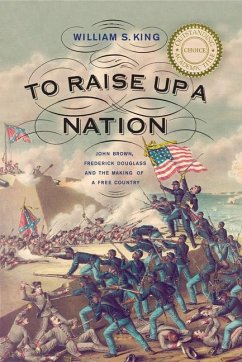
The Confederacy at Flood Tide: The Political and Military Ascension, June to December 1862
Versandkostenfrei!
Versandfertig in über 4 Wochen
21,99 €
inkl. MwSt.

PAYBACK Punkte
11 °P sammeln!
While the "high tide" of the Confederacy is often identifed as Pickett's Charge during the Battle of Gettysburg in July 1863, the most opportune time for the Confederacy vanished seven months earlier, coinciding with President Abraham Lincoln's Emancipation Proclamation in December 1862 and the failure of the secessionist states to be recognized as a sovereign nation. As Philip Leigh explains in his engrossing new book, The Confederacy at Flood Tide: The Political and Military Ascension, June to December 1862, on every battlefront and in the governmental halls of Europe, the Confederate effort...
While the "high tide" of the Confederacy is often identifed as Pickett's Charge during the Battle of Gettysburg in July 1863, the most opportune time for the Confederacy vanished seven months earlier, coinciding with President Abraham Lincoln's Emancipation Proclamation in December 1862 and the failure of the secessionist states to be recognized as a sovereign nation. As Philip Leigh explains in his engrossing new book, The Confederacy at Flood Tide: The Political and Military Ascension, June to December 1862, on every battlefront and in the governmental halls of Europe, the Confederate effort reached its furthest extent during the second half of 1862. But with the president's proclamation, battlefield reverses, Europe's decision to reject Confederate diplomatic overtures, and Britian's decision to halt the sale of the ironclads, the opportunity for Confederate success ended. The Confederacy would recede, and the great battles of 1863 and 1864 only marked the Southerners' tenacity and stubborn belief in a lost cause.












